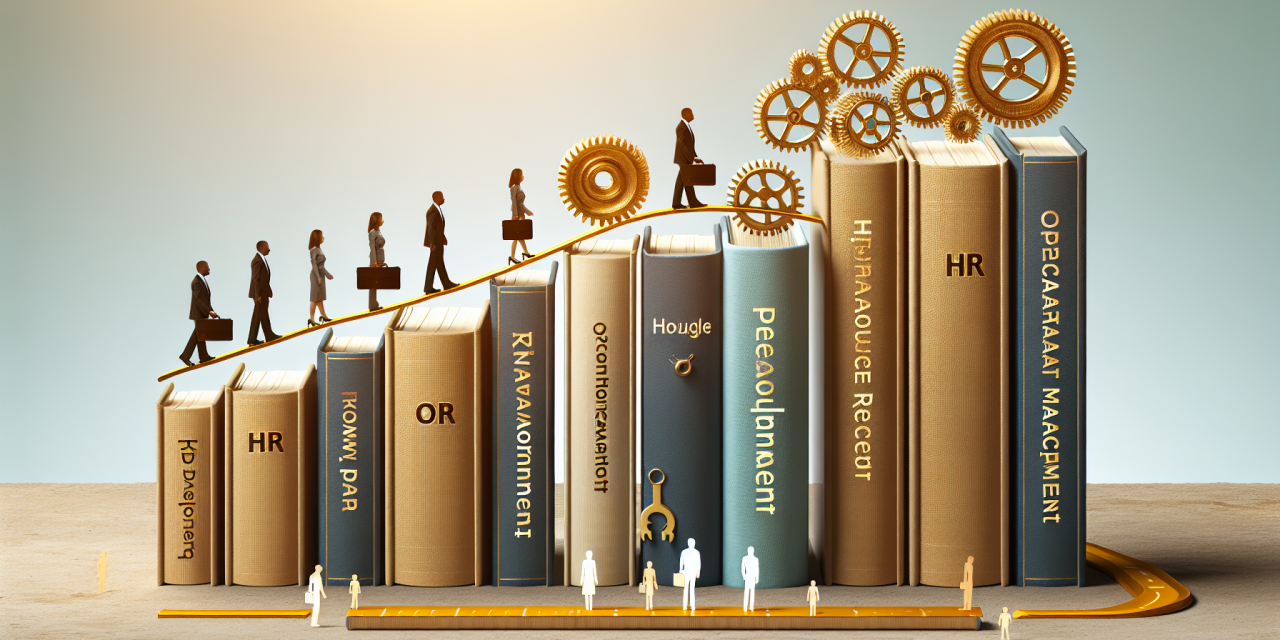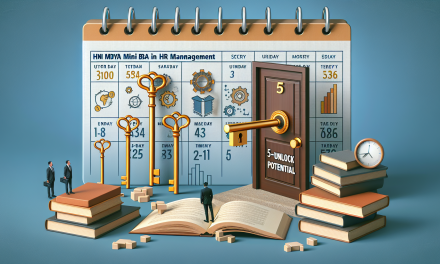Table of Contents
- Understanding Human Resources Development
- The Importance of Personnel Management
- Key Components of Effective HR Strategies
- Essential Skills and Competencies Needed
- Navigating Today’s HR Landscape
- Conclusion
- FAQs
Understanding Human Resources Development
Human resources development is an essential aspect of any organization, focusing on improving the skills and knowledge of employees. This area of management emphasizes ongoing learning and professional growth, which ultimately leads to better performance and productivity. By investing in human resources, organizations nurture an environment of growth and innovation.
Defining Human Resource Development
At its core, human resource development entails systematic processes designed to enhance an employee’s abilities. Moreover, it encompasses various training and professional development activities aimed at achieving organizational goals. Understanding the importance of continuous education and training becomes pivotal for companies that aspire to stay competitive in today’s fast-paced environment.
The Importance of Personnel Management
Effective personnel management contributes significantly to an organization’s success. Personnel management involves planning, organizing, directing, and implementing the personnel policies of an organization. By managing personnel effectively, organizations can ensure optimal utilization of their human resources.
Enhancing Employee Engagement
In a world where employee engagement directly influences productivity, cultivating a motivated workforce becomes critical. When personnel management focuses on fostering engagement, it leads to higher job satisfaction, lower turnover rates, and heightened organizational loyalty. Engaged employees are not just happier; they also perform better, making personnel management a vital component of corporate strategy.
Adapting to Changing Workforce Dynamics
The dynamics of the modern workforce are continually evolving, influenced by factors such as technological advancements and demographic shifts. Consequently, personnel management must adapt to these changes. Emphasizing diversity, equity, and inclusion becomes paramount. Organizations that embrace diverse perspectives tend to be more innovative and successful.
Key Components of Effective HR Strategies
Crafting effective human resources strategies encompasses several key components. Therefore, understanding these elements can help organizations align their HR practices with their overarching objectives.
Strategic Workforce Planning
Strategic workforce planning involves analyzing and forecasting the needs of the organization concerning its workforce. This process enables organizations to ensure they have the right people in the right positions at the right time. A robust workforce planning strategy provides organizations with a competitive edge, allowing them to respond proactively to changes in the labor market.
Performance Management Systems
A well-implemented performance management system helps in tracking employee contributions and aligning individual performances with the company’s goals. Through regular feedback and evaluations, organizations can identify areas for improvement and provide necessary support.
Training and Mentorship Programs
Instituting effective training and mentorship programs can foster professional development and personal growth. When organizations provide pathways for employees to learn new skills, they not only enhance workforce competency but also demonstrate their commitment to employee development. For more in-depth insights, consider exploring the Human Resource & Personnel Management Development Course.
Reward and Recognition Systems
Finally, implementing reward and recognition systems acknowledges employee contributions and fosters a culture of excellence. Recognizing hard work incentivizes employees to perform at their best, creating a productive and positive work environment.
Essential Skills and Competencies Needed
To manage human resources effectively, professionals require a diverse skill set and various competencies.
Communication Skills
First and foremost, strong communication skills are vital. HR professionals must convey messages clearly and listen actively. Effective communication fosters a culture of transparency, enabling employees to feel valued and understood. This principle is particularly important when addressing employee grievances, which requires sensitivity and clarity.
Analytical Skills
Secondly, analytical skills play an instrumental role in human resources management. HR professionals regularly analyze data to make informed decisions regarding recruitment, performance evaluation, and employee satisfaction. By leveraging metrics and analytics, organizations can refine their strategies and improve overall performance.
Negotiation Skills
Additionally, negotiation skills are crucial for resolving conflicts and managing employee relations. Effective negotiators can foster mutual understanding and work towards solutions that benefit both employees and the organization. For further exploration, delve into Mastering Employee Relations: Motivating, Managing Grievances, and Upholding Discipline.
Leadership Abilities
Lastly, leadership skills are increasingly important in HR roles. Therefore, HR professionals must inspire and guide teams towards achieving organizational goals. Strong leaders motivate others by setting clear expectations and providing support, which fosters team cohesion.
Navigating Today’s HR Landscape
Today’s HR landscape presents both challenges and opportunities. Organizations must navigate various issues, including technological disruptions, compliance concerns, and the need to prioritize employee well-being.
The Impact of Technology on HR
Technology has transformed HR practices, introducing tools that enhance recruitment, onboarding, and performance management processes. For instance, utilizing HR software simplifies payroll and benefits management, streamlining essential functions. For a comprehensive approach, explore Mastering Payroll, Compensation, and Benefits Management: Your Comprehensive Guide.
Compliance and Legal Considerations
Moreover, organizations must remain vigilant regarding compliance with labor laws and regulations. Understanding new regulations is essential to mitigate risks associated with potential legal disputes. Implementing robust compliance strategies enables organizations to avoid penalties and foster a safe work environment.
Employee Well-being and Mental Health
Lastly, prioritizing employee well-being has gained prominence in today’s workplace. Organizations are increasingly recognizing that mental health and overall wellness significantly contribute to productivity and employee satisfaction. Therefore, HR professionals must develop programs that support employees’ mental and emotional health.
Conclusion
In conclusion, effective human resources development and personnel management are critical to organizational success. Investing in employee development fosters a culture of continuous learning and engagement, leading to higher productivity and satisfaction. By mastering the essential skills mentioned and navigating the complexities of today’s workplace, HR professionals can pave the way for sustainable growth and success. To further enhance your expertise, consider reputable resources, such as the Unlocking Success through Strategic Human Resource Management: A Comprehensive Guide or Your Ultimate Guide to Selecting and Implementing a Payroll System: A Comprehensive Project Plan.
FAQs
What is the role of human resources in an organization?
The role of human resources in an organization includes managing employee recruitment, development, performance, and relations while ensuring compliance with labor laws and regulations. HR also plays a crucial role in fostering a positive company culture and facilitating employee engagement.
How can organizations benefit from effective personnel management?
Effective personnel management can lead to higher employee satisfaction, lower turnover rates, improved productivity, and enhanced organizational performance. By aligning employee goals with the organization’s objectives, companies can create a more motivated and efficient workforce.





